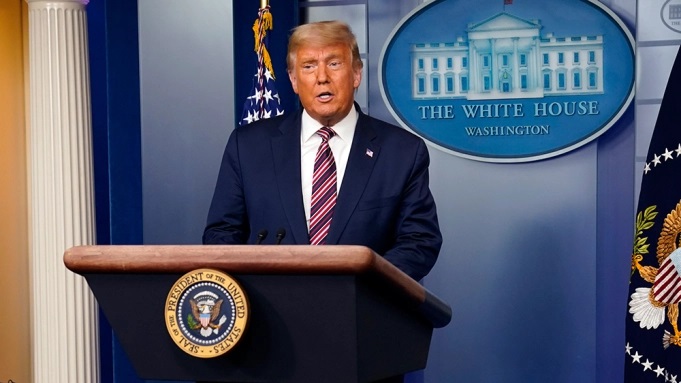US President Donald Trump vetoed a broad defense funding bill sent to him by Congress Wednesday, complaining that it helps Russia and China and objecting to provisions to rename military bases.
The bipartisan bill was passed by high enough margins in both chambers of Congress for lawmakers to — in theory — override the president’s rejection.
The veto of the $740 billion measure to fund the military for fiscal 2021 came a day after the US leader, with less than one month left in office, threw a separate $900 billion Covid-19 relief bill and overall funding for the government into question.
Trump criticized the annual National Defense Authorization Act for not responding to his demand to end liability protections for social media companies, known as Section 230 — an issue with no relationship to the US Defense Department.
He also objected to a provision in the NDAA to rename military bases bearing the names of generals from the secessionist, slavery-supporting South in the 19th century US civil war.
And he objected to a provision which could impede his decision to sharply cut US troop levels in Germany, Afghanistan and elsewhere.
The NDAA “fails to include critical national security measures, includes provisions that fail to respect our veterans and our military’s history, and contradicts efforts by my Administration to put America first in our national security and foreign policy actions,” Trump said in a statement.
Without the changes to Section 230, Trump said, the NDAA “is a ‘gift’ to China and Russia.”
The Democratic House Speaker Nancy Pelosi slammed Trump’s veto as “an act of recklessness that harms our troops, endangers our security & undermines the will of Congress.”
Both the House and the Senate set aside time next week to vote to override the veto — which would be the first such rebuff from Congress in his nearly four years in office.
But with the omnibus funding bill, including general government finance and Covid-19 relief, still up in the air, it was not clear whether Trump was leveraging both for concessions.
Source: Agenceis




